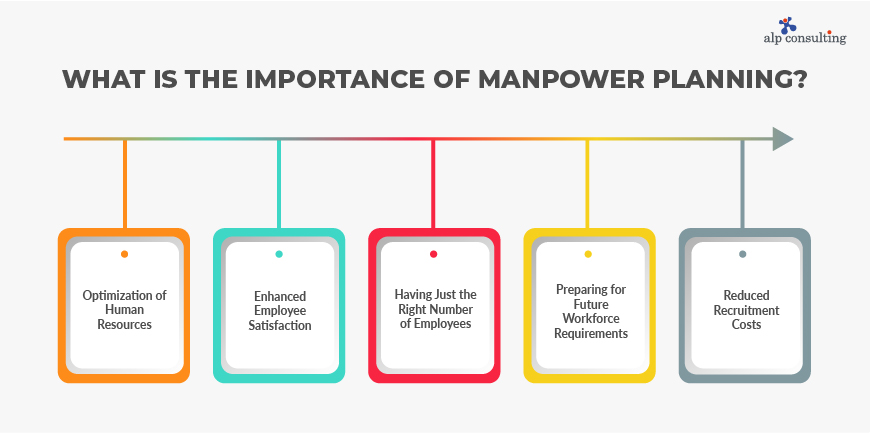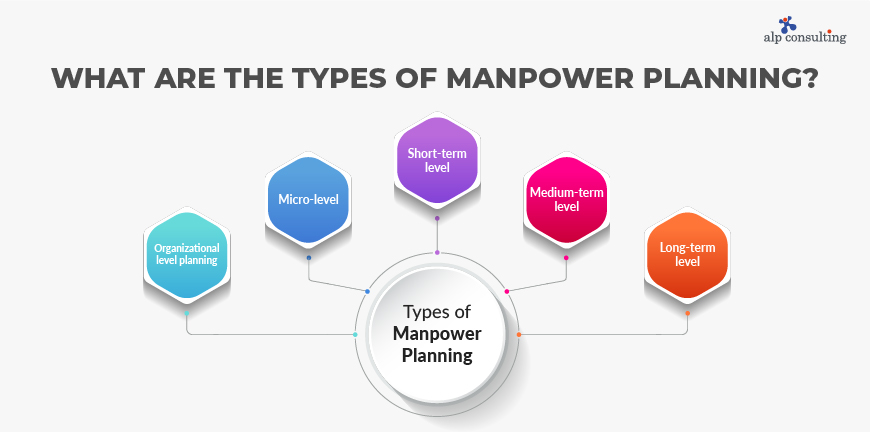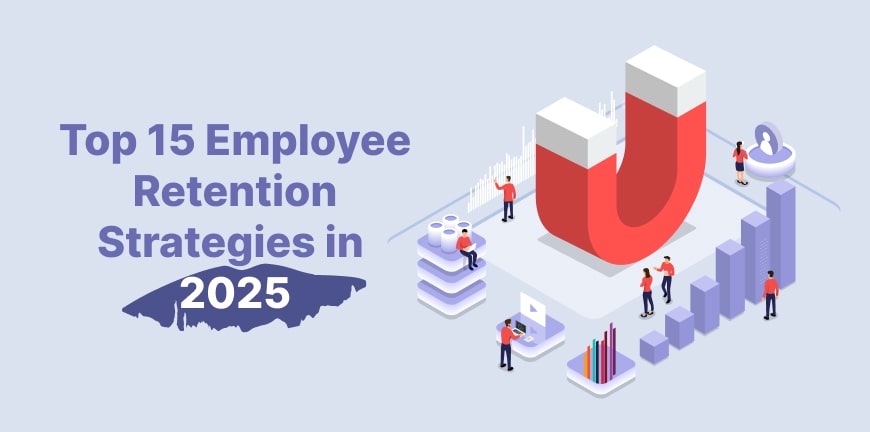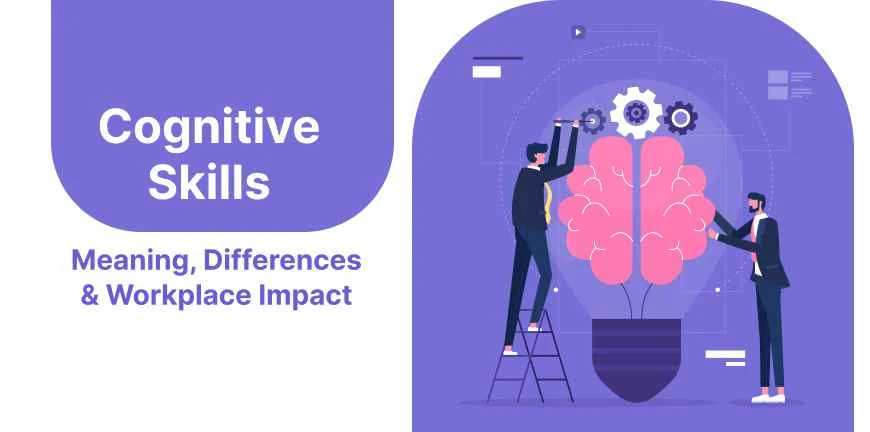
Understanding the New Labour Codes: Practical Insights for Employers
29/12/2025
10 Talent Acquisition Strategies for HR
30/12/2025- What is Manpower Planning?
- What is the Importance of Manpower Planning?
- What are the Key Steps of Manpower Planning?
- What are the Objectives of Manpower Planning?
- What are the types of manpower planning?
- How does HR (Human Resources) do Manpower Planning?
- What Are the Methods of Forecasting Manpower?
- Why do you need a Manpower Planning Expert?
- What are the Latest Trends in Manpower Planning?
- Key Takeaways
- Frequently Asked Questions (FAQs)
Manpower Planning is one of the most crucial factors that can have an impact on the success of an organization. In order to maintain a constant talent pipeline in the organization, it’s essential to understand all the dos and don’ts of manpower planning. Having a clear idea about the fundamentals of manpower planning can greatly benefit business owners, managers, and others in streamlining the workforce effectively.
What is Manpower Planning?
Manpower planning means ensuring a constant talent pipeline for an organization. The definition of manpower planning is determining the number of employees you require in an organization to complete certain tasks and making sure that the right employees are employed during the time to meet its demands.
With the right manpower planning, businesses can manage their workforce better and ensure that the right employees are working in the right roles at the right time. Manpower planning helps businesses to maintain the right number of employees, not too few or not too many, and avoid productivity or increased workload for the existing employees.
Staffing fluctuations that can occur during holiday seasons can be addressed effectively with the right manpower planning and ensure the smooth running of operations around the year without disruptions.
What is the Importance of Manpower Planning?
Importance of Manpower Planning – The Manpower planning process helps organizations gauge their human resource requirements perfectly. Some main reasons why manpower planning is important are:

1. Optimization of Human Resources
As an organization, if you are hoping to craft a path of success with continued operations in your firm, then it’s essential to optimize the use of the existing human resources, meaning you must ensure that you have the right individuals with the right skills working in the right roles at the right time. It’s important not to overstaff or understaff an organization if you want to achieve productivity.
2. Enhanced employee satisfaction
Having the right manpower planning in place can ensure that your existing workforce, as well as the new workforce, are engaged in work that is meaningful and are contributing to the overall organizational goals, which is not only good for the organization but also boosts employee motivation.
3. Having just the right number of employees
Manpower planning helps assess exactly how many employees you require working under various departments or in distinct roles, avoiding over-hiring or under-hiring in organizations. And to maintain the dynamics and success of the organization, this is extremely essential. Additionally, it also helps in ensuring that the customers’ needs are met.
4. Preparing for future workforce requirements
To ensure that an organization can accommodate all the future project needs or other changing business requirements, manpower planning is crucial. Future manpower planning involves forecasting the organisation’s future workforce requirements, including the number of employees required, and the skills and qualifications they should possess. By anticipating future workforce needs, organisations can plan and make the necessary preparations to meet these needs, which helps to ensure their long-term success.
5. Reduced recruitment costs
By gauging the workforce requirements and analysing the current manpower inventory, organisations can determine the most cost-effective methods of recruiting and retaining employees. This can lead to reduced recruitment costs associated with advertising, interviewing, and training, which contributes to better efficiency and profitability.
What are the Key Steps of Manpower Planning?
The few vital steps necessary for a successful manpower planning process are as follows:
1. Analyse the Existing State of the Workforce
Before initiating workforce planning, HR and company leaders and bosses must first assess and comprehend the existing issues that the workforce is facing. They must carefully evaluate the positives and negatives of the organization, the kind of talent or skills that are necessary for the company to grow, and the roles and demographics needed for the present and future work structures.
2. Predict Future Manpower Requirements
Calculating and assessing the number of employees and skills will be required in the future. There are various methods to analyse these requirements, and the factors influencing the analysis are technological advancements, attrition, and retention rates, productivity levels, etc.
3. Evaluating Current Manpower
Analysing the number of individuals working in the existing workforce, their skills, experiences, qualifications, performance, etc. Here, the workforce inventory is thoroughly analysed, considering elements like departments, roles, and how the manpower is distributed across departments.
4. Determining Gaps
Organizations must compare the current supply of manpower to the future requirements. A proper analysis of the current and future needs must be facilitated to identify the talent shortages and surpluses.
5. Implementation of Strategies
The organization must craft a plan and address the identified labour shortages and execute it by recruiting new employees to fill gaps, accelerating training and development programs to cater to the needs, shifting employees to different departments and positions, etc.
What are the Objectives of Manpower Planning?
Manpower planning is critical for maintaining an efficient workforce. Some of the main objectives of manpower planning are-
- Proactively identify workforce shortages or surpluses and address potential issues before they impact the company’s financial performance.
- Ensure that all recruitment and selection programs are aligned with effective manpower planning to optimize results.
- Minimize labour costs by avoiding overstaffing or hiring excess personnel.
- Utilize manpower planning to identify skilled talent within the workforce and create development plans for their growth.
- Support business growth and diversification by efficiently leveraging available human resources through strategic manpower planning.
What are the types of manpower planning?
Manpower planning is a complex process that involves several levels of management. Some of the types of manpower planning are-

1. Organizational level planning
To help the organization’s overall development, manpower planning can be done at an organizational level to create better employment opportunities by using available human resources efficiently.
2. Micro-level
At a micro-level, managers take measures at the business unit’s recruitment, selection, promotion, and expansion stages to train, compensate, and plan workers.
3. Short-term level
Usually, a one-year manpower planning is considered short-term. At this level, annual plans are beneficial as short-term goals can be easily achieved.
4. Medium-term level
Manpower planning that is for a period of 2 to 5 years is considered medium-term. Training and development of employees is often part of medium-term Manpower planning, as it focuses on imparting skills that will be useful for the company in the next five years.
5. Long-term level
Any manpower planning scheme that is over ten years is long-term manpower planning. As part of long-term manpower planning, essential decisions regarding investments, acquisitions, and mergers are taken.
How does HR (Human Resources) do Manpower Planning?
Manpower Planning by HR is a process of systematic planning to achieve optimum use of its employees. HR Manpower’s planning strategy involves finding the right employees for the right roles while avoiding manpower shortages or surpluses.
With HR Manpower planning, organizations can assess their workforce needs and plan to meet those needs, so they can maintain a steady supply of employees.
With the right manpower planning, organizations can meet both short-term staffing challenges and long-term ones. Some of the steps in manpower planning are-
- Identify the current supply of employees and develop a plan for future workforce needs
- Attract skilled employees with the right advertising of the job on various job portals and social media
- Selection, training and development, and rewarding the candidate
- Help employees find the right job roles and keep them engaged, motivated, and productive
- Address and deal with unseen absences and conflicts that may arise at the workplace among employees
- Ensure a constant talent pipeline by crafting the right Succession planning method
- Promote employees or let some of them go
- Keep tabs on trends that could impact future supply and demand and support the company’s goals
Achieving effective HR Manpower planning can ensure that the company can make the best out of its existing workforce, has a competitive edge over others in the industry, and is better placed to respond to challenges and adapt to changes.
What Are the Methods of Forecasting Manpower?
There are essentially two categories of forecasting in a manpower planning process. Let’s have a look:
Quantitative Methods- This involves the use of mathematical and statistical data to predict future needs. The method entails trend analysis, workload analysis, ratio analysis, the Delphi technique, and Regression analysis.
Qualitative Methods- This is a method that depends on management level information, judgment, etc., rather than numbers and data. The method uses systems like work study, scenario analysis, skill inventory, and replacement charts.
Why do you need a Manpower Planning Expert?
Alp Consulting, having been in the staffing and recruitment industry for over two decades, is one of the few manpower planning experts in the country. As a manpower planning partner, we make sure organizations optimize their human resources, aligning workforce capacity with business goals. By forecasting staffing needs, preventing overstaffing or understaffing, and identifying skill gaps, we help reduce labour costs and improve productivity.
As a manpower planning expert, we play a key role in talent development, enabling your company to nurture internal talent and adapt to market changes. Ultimately, we ensure that your workforce is strategically managed to support business growth, sustainability, and competitiveness.
What are the Latest Trends in Manpower Planning?
The manpower planning landscape is evolving, and there are various emerging trends that are being adopted by companies. Let’s check out some of the significant trends:
Focus on Skill-Based Planning- Organizations are emphasizing the importance of skills and competencies rather than harping on job titles and backgrounds, and building teams as per requirement.
AI and Modern Tech on the Rise- Companies are leveraging analytics and AI-driven tools for workforce planning. The tools make it easy for employers to forecast manpower requirements.
Flexible Work Models- With the change in business landscapes, companies are depending more on remote and hybrid talents like contract workers rather than focusing on permanent hires.
Retention of Brand and Focus on Employee Experience- Organizations are realizing that workforce planning is about drawing and retaining the right talent by improving their work experience and practicing inclusion and diversity in their work plans.
Key Takeaways
- Ensures the Right Talent at the Right Time
- Optimizes Resources and Diminishes Costs
- Structured Forecasting and Planning
- HR Plays a Strategic Role in Workforce Planning
- Focus on Modern Trends, Tech, and Flexibility
Frequently Asked Questions (FAQs)
1. What is manpower?
Manpower refers to the total workforce or human resources available to perform work for an organization, industry, or project. It includes skilled, semi-skilled, and unskilled employees who contribute to achieving business goals.
2. What is the importance of manpower?
Manpower planning enables organizations to meet future expansions and use manpower effectively. Manpower planning is significant in making certain important decisions relating to human resource management, such as growth, talent management, cost control, facilities planning, and succession planning.
3. What are the steps involved in manpower planning?
Manpower planning involves steps like assessing the current workforce, forecasting future manpower requirements, performing a gap analysis, and designing recruitment and training programs to address gaps.
4. What is the scope of manpower planning in human resource management?
The scope of workforce planning in HRM entails forecasting future staffing needs, analysing the current workforce, identifying and addressing skill gaps, etc.
5. How does manpower planning reduce recruitment costs?
Manpower planning facilitates future prediction of staffing, allowing intelligent and proactive hiring and avoiding last-minute additional expenses required for crisis hiring.
Contact Us For Business Enquiry

Rajkumar Shanmugam
Rajkumar Shanmugam is the Head of HR at ALP Consulting, bringing over 19 years of comprehensive HR leadership experience across India and international markets. His expertise spans talent acquisition, employee relations, performance management, compliance, and HR transformation. Rajkumar has a proven track record of driving people-centric initiatives, enhancing workplace culture, and aligning HR strategy with business goals. With extensive experience in US staffing operations and global mobility, he continues to lead organizational excellence through innovation and employee engagement.




